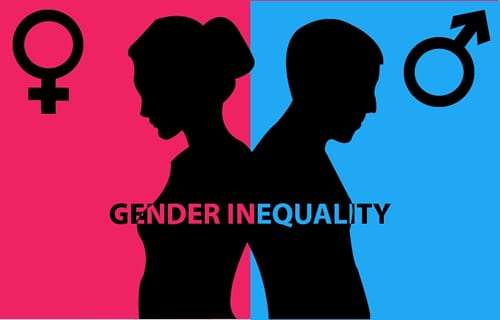Slow progress in Gender equality due to non-involvement of men
She said men were not sensitised and involved in the conversation around gender equality, hence, its stalling. Madam Banfro made the call at a one-day male only dialogue session, organised by the Department of Gender with support from the United Nations Population Fund (UNFPA) and the Canadian Government for 75 men and boys at Mamprobi in the Ablekuma South District.
Madam Matilda Banfro, Acting Greater Accra Regional Director, Department of Gender, has attributed the slow progress of attaining gender equality to the exclusion of men.
She said men were not sensitised and involved in the conversation around gender equality, hence, its stalling.
Madam Banfro made the call at a one-day male only dialogue session, organised by the Department of Gender with support from the United Nations Population Fund (UNFPA) and the Canadian Government for 75 men and boys at Mamprobi in the Ablekuma South District.
The session was to engage men and boys to understand their roles in achieving gender equality and national development and also to sensitise them on their Sexual Reproductive Health and Rights (SRHR).
Gender equality is a human right and developmental issue, which includes the guarantee of universal access to sexual and reproductive health and rights for all.
The country’s goal towards achieving gender equality targets is guided by its commitment to International Instruments, the 1992 Constitution and National Development Frameworks.
Madam Banfro said understanding gender roles and masculinities, as well as their impact on bridging the gender gap, required awareness, analysis and visibility.
She underscored the need for the citizenry to acknowledge that gender equality was a societal issue that concerned all and must engaged both men and women.
‘‘Women alone cannot achieve gender equality by themselves neither can it be achieved by focusing solely on women. Gender equality affects both men and women, and progress in this area necessitates both men and women’s participation,’’ Madam Banfro said.
She called for accelerated actions to expand the conversation and look at how to engage and encourage men and boys to help push the agenda forward at the local and global level whiles acting against gender inequality, which women faced globally.
Madam Juliana Abbeyquaye, Acting Eastern Regional Director, Department of Gender, said unequal societies were less cohesive, leading to higher rates of anti-social behaviour and violence.
‘‘Gender equality was not a competition but a collaboration of male and females,’’ she said.
Madam Abbeyquaye noted that social and economic pressures, which defined men as breadwinners, would be reduced when gender equality was achieved and women empowered.
Madam Sheila Serwaa Ayiripe, a Senior Nursing Officer, Accra Metro Health Directorate, said abstinence was the only ‘‘proof method’’ to prevent Sexually Transmitted Infections (STIs).
She encouraged men to visit the doctor every two years for prostate examination after age 40 whiles avoiding alcohol and caffeine after dinner, reduce stress levels, eat right and exercise.
Source: newsghana.com.gh


